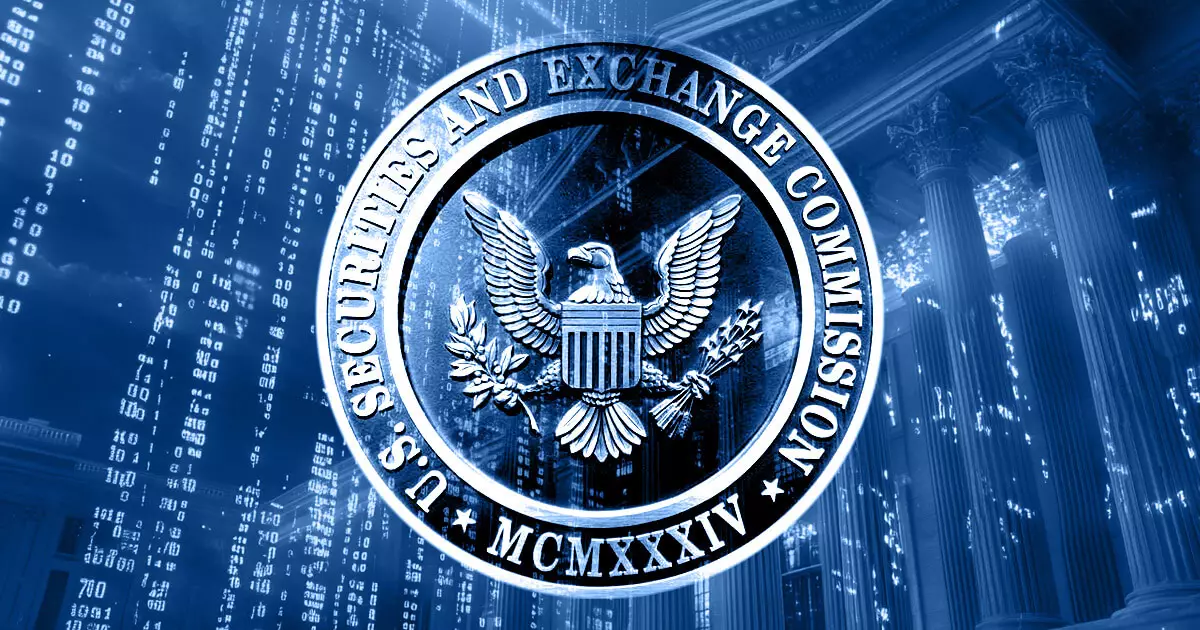The U.S. Securities and Exchange Commission (SEC) has taken a noteworthy step in the realm of cryptocurrency investments by recognizing two significant regulatory filings: Grayscale’s proposed spot Litecoin (LTC) exchange-traded fund (ETF) and BlackRock’s request for in-kind redemptions for its iShares Bitcoin ETF (IBIT). This slight yet pivotal acknowledgment signals a possible shift in the regulator’s approach toward the burgeoning crypto market, presenting both opportunities and challenges for institutional investors and the broader public.
Market Analysts’ Perspectives
Industry analysts emphasize that the SEC’s engagement with Grayscale’s and BlackRock’s filings symbolizes a potential green light for these financial products. Eric Balchunas, a senior ETF analyst at Bloomberg, remarked that the Litecoin ETF proposal possesses all the necessary attributes to meet regulatory standards. His commentary about the “boxes checked” suggests that the SEC may be evolving in its judgments, framing Litecoin as a commodity rather than a security. The dialogue around regulatory stances indicates a greater acceptance of digital assets within mainstream finance, waiting solely for the official nod from the SEC.
The second notable filing concerns BlackRock’s request for in-kind redemptions, which would allow Bitcoin (BTC) to be directly transferred to investors rather than liquidated for cash during the redemption process. This framework is expected to streamline operations and potentially lessen the tax burden on institutional investors. By adopting an in-kind approach, the ETF structure could minimize the adverse effects on capital gains taxation and operational inefficiencies associated with cash transactions, thereby rendering it more attractive for large-scale participants.
The landscape for cryptocurrency ETFs is rapidly evolving. As regulatory clarity emerges, analysts speculate that the SEC could approve multiple crypto ETF applications simultaneously—a course of action that would significantly alter the investment scene. The inclusion of in-kind redemption protocols not only enhances liquidity but also aligns with a broader industry movement aimed at increasing efficiency in ETF transactions. Consequently, the SEC’s engagement with these filings could be a precursor to a transformative phase for digital asset investments.
The broader implications of these SEC filings extend beyond the immediate effects on Litecoin and Bitcoin ETFs. They mark an essential maturation in the regulatory environment surrounding digital assets. Investors and market participants are increasingly leaning toward models that promise reduced risks and expenses in crypto transactions. As the SEC grapples with formulating its stance on digital currencies, the growing interest in ETFs reflects an escalating recognition of cryptocurrencies’ validity as legitimate financial instruments.
The SEC’s recent acknowledgment of Grayscale and BlackRock’s filings may foreshadow a pivotal shift in the regulatory treatment of cryptocurrency investments. As stakeholders await concrete decisions, the growing acceptance of crypto ETFs could signal a significant leap toward mainstream integration of digital assets. The unfolding landscape calls for careful monitoring, as the SEC’s actions will likely define the trajectory of crypto investment opportunities for years to come.




















Leave a Reply